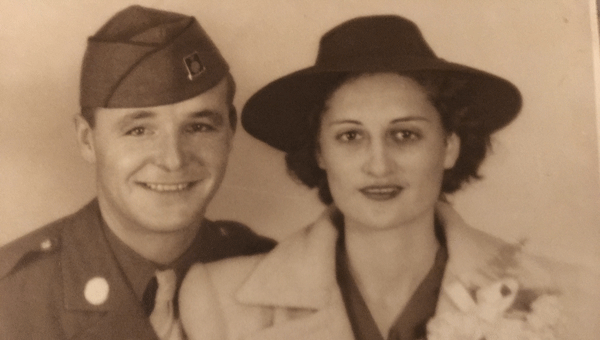Williams led life of humility, adventure
Published 5:47 pm Tuesday, April 25, 2017

- Butler County native Alcie Mae Faust Williams explored the continental United States alongside her husband, Elgee Jay “Bill” Williams, before settling down in Illinois.
Butler County native Alcie Mae Faust Williams passed away quietly Sunday, April 9 at a senior care center in Illinois. But her life—filled with excitement, intrigue and travel—was anything but.
Ninety-seven years ago, the United States was nearly unrecognizable from its current form.
Here’s a bit of perspective. There were only 48 states at the time. Also in 1919, the women’s suffrage movement came to a head when the 19th Amendment was approved, giving women the right to vote a year later when it was ratified. The Green Bay Packers organization was founded.
And, most importantly of all for Pat Angerhofer, her mother, Williams, was born.
Though Williams claimed Alabama as her home, she would eventually make that sentiment true for most of the country, traveling the entire continental United States in her lifespan (a feat that proved much more difficult in the first half of the 20th century). That fact becomes doubly impressive when considering that seat belts didn’t become a standard until the late 1950s and early 1960s.
Williams, born the eldest child of eight born to William Robert Dearl Faust and Emma Elizabeth Lawrence Faust, was raised in rural Butler County as her father followed the W.T. Smith Lumber Company in its operations throughout the area.
Growing up in a household of 10, she and her two sisters specialized in chores.
Named after an Arkansas WWI nurse who saved her father’s life during a flu epidemic, it was perhaps fate that she became a talented bed maker and tireless caregiver, in addition to her other responsibilities.
In 1942, she met Sgt. Elgee Jay “Bill” Williams of the 81st Infantry Division, the Fighting Wildcats, from Everett, Wash., and the two were married just four months later.
Bill’s work took him to Lebanon, Tenn., where she followed by train, bus and taxi cab despite being terrified of the prospect of leaving Alabama.
From there, the journey landed her in Arizona, California and eventually Illinois, though she still make frequent drives back home by car in a time when many women didn’t.
She drove her young daughters to spend summers with her parents in McKenzie.
Angerhofer, raised in Illinois, said that originating from the South marked her family.
“As a military kid, you’re moving around all over and you can claim any state that you want as your home,” she said. “I was born in California, but I would claim Alabama in a heartbeat.
“And the reason is because Alabama marked us for qualities that really don’t exist elsewhere—the emphasis on family, God, sense of place and history, the importance of knowing who people are and where they’re buried… it was just a greater sense of permanence in the South than there is anyplace else. And there’s a great sense of personal obligation to someone else. In other words, I behave in a certain way to make you comfortable.”
Many would define this phenomenon as simple Southern hospitality, though Angerhofer believed it went a bit beyond courtesy.
“It’s just an awareness of your behavior toward another person, and putting that person’s well-being first. That’s manners, to me—making someone else comfortable. We are taught that we do not have the right to run over anyone else.”
Though a 97-year-wide gulf of experiences separate Williams’ birth and death, Angerhofer said that the lessons learned during the time in between continued to define not only her life, but the lives of her family members, as well.
“My mother treated me like a princess,” Angerhofer said. “I was the center of her world.
“When she would come in to check on you at night to make sure that you’re covered up…even when I visited her in the nursing home, she held my hands for the whole visit because they seemed to be cold. I was never even one-tenth the mother that she was.”
“The thing that I thought was so fabulous about my mother was that she was a little farm girl who had never been out of Alabama, and she was forced out of her comfort zone.”
“And she flew with it. And that’s amazing to me.”





